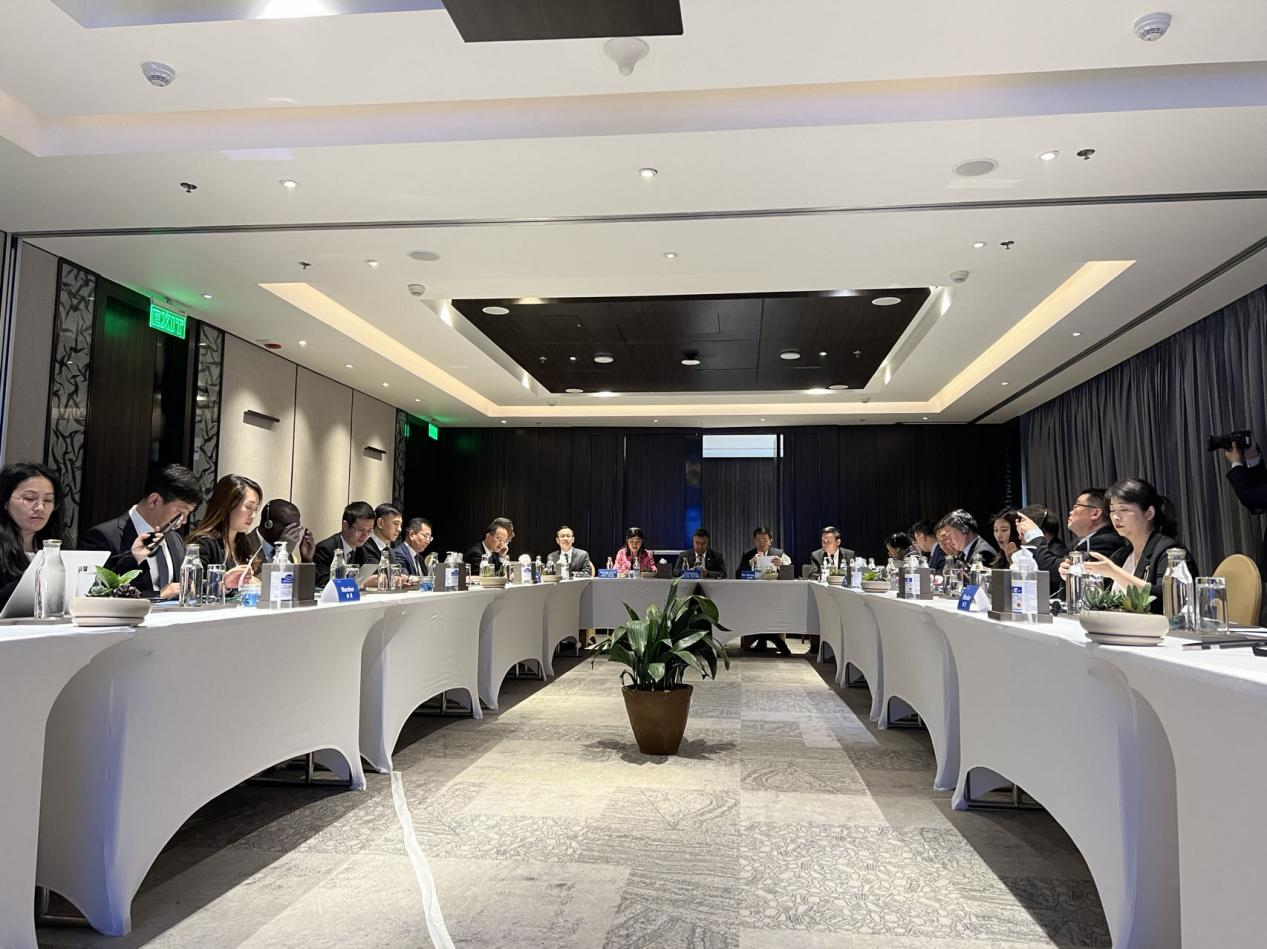

Your current location:Home > The Committee > About Us


Ⅰ. Introduction
21st-Century Maritime Cooperation Committee (hereinafter referred to as the Committee) is a standing committee of United Cities and Local Governments Asia-Pacific (hereinafter referred to as UCLG ASPAC), jointly initiated by the Chinese People’s Association for Friendship with Foreign Countries (CPAFFC) and the Fuzhou Municipal People’s Government. It was established after approval in April 2017 at the UCLG ASPAC Executive Bureau Meeting held in Catbalogan, the Philippines. It is a non-profit international organization composed of the members of UCLG and other cities and organizations that accept the Charter of the Committee. The site and the secretariat of the Committee shall be permanently located in Fuzhou, Fujian, China. Since its establishment, 65 cities and organizations of 27 countries from 5 continents have joined the Committee.
On December 31, 2020, the official website of the Committee was officially launched. The bilingual website, with 10 blocks and over 20 columns, publishes news of Fuzhou and the Committee’s members, international information, and the Committee’s activities. It presents in forms of videos, words and pictures to promote digital interactions with members of the Committee. It demonstrates what the Committee has done and achieved in full respects to realize information and resource sharing. Meanwhile, the website will be a new window to actively showcase the image of Fuzhou and to share maritime cooperation achievements.
Ⅱ. Mission
1. Build a platform. Based on UCLG ASPAC, the Committee will work with the coastal cities and local governments in Asia-Pacific and the world at large to jointly build the 21st-Century Maritime Cooperation Center, to set up the effective dialogue and linkage mechanism, to serve as an important platform of Belt and Road for the cities and local governments in Asia-Pacific and the world at large to share ideas and best practices on maritime cooperation, and to help push forward the development of the Core Area of the 21st-Century Maritime Silk Road.
2. Integrate resources. By integrating resources in Asia-Pacific and the world at large, the Committee will take overall consideration and implement a batch of key projects with the involvement of different parties, so as to promote cooperation in marine science and technology and protection of marine ecosystems, as well as facilitate the construction of the 21st-Century Maritime Silk Road.
3. Promote exchanges. The Committee will deepen the cooperation among the coastal cities and local governments in Asia-Pacific and the world at large in the fields of marine economy, marine conservation, waterway security, ports, disaster prevention and reduction, focus on industries including marine aquaculture, fishing, aquatic products processing, marine engineering equipment, new energy and renewable energy, desalination of sea water, marine bio-pharmaceutical, environmental protection and maritime tourism, and jointly build the Marine Economy Demonstration Zone, Marine Science and Technology Park, Marina Resort and Marine Professionals Training Center.
4. Offer advice and suggestions. The Committee will strengthen studies on the subject of maritime cooperation, and compile and publish reports on selected initiatives, so as to provide the cities and local governments in Asia-Pacific and the world at large with practical suggestions on maritime cooperation and help members enhance the scientific and technological innovation capacity.
The Committee also encourages the island nations in Asia-Pacific and throughout the world to be involved and supports these entities to develop their capacity and economic development.
Ⅲ. Major Activities
Since its establishment, the Committee has participated in meetings and activities held by UCLG, UCLG ASPAC and Metropolis, and organized 26 activities including the general assemblies, themed forums, workshops, and the Committee meetings.
1. The First General Assembly of 21st-Century Maritime Cooperation Committee
(1) The First General Assembly in 2018
The First General Assembly of the Committee was successfully held in Fuzhou on May 17, 2018. Over 110 guests attended the event, including representatives of the 30 founding members from 5 continents and advisers of the Committee. At the Assembly, the Charter of the Committee was approved unanimously. The Presidents, the Co-Presidents and the Secretary General of the Committee were announced and granted approval. Twelve advisers were appointed, the list of the founding members was announced and Fuzhou Declaration was adopted. And the trophy and appointment certificate awarding ceremony for the founding members, Co-Presidents, Secretary General and advisers were also held at the Assembly.
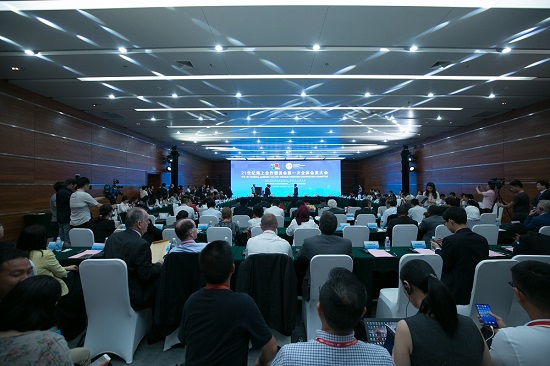
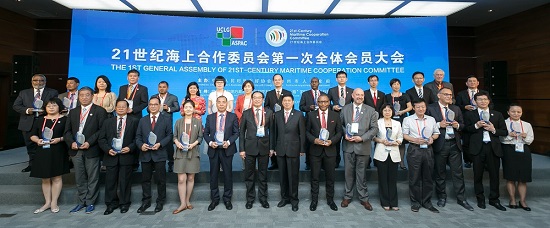

(2) The Second General Assembly in 2022
On the afternoon of May 17, 2022, the Second General Assembly of 21st-Century Maritime Cooperation Committee was held in Fuzhou, China, in a hybrid form integrating online and in-person attendance. Over 120 delegates of more than 70 groups from 22 countries and 3 international organizations participated in this event, including the members and advisers of the Committee, representatives of international organizations, Fuzhou’s international friendship cities and cities of friendly exchanges and the business community, officials of foreign embassies and consulates in China, as well as experts and scholars from China and other countries. The General Assembly voted on and adopted the revised Charter of 21st-Century Maritime Cooperation Committee, elected the Committee’s new President, Co-Presidents and Secretary General, established the Council of the Committee, announced new members and advisers, and reported on the Committee’s work progress and plans for the future. In addition, a thematic activity was held for the members to review the Committee’s 5-year development, and the awards for “Most Active Committee Members” and “Advisers with Outstanding Contribution” were presented.
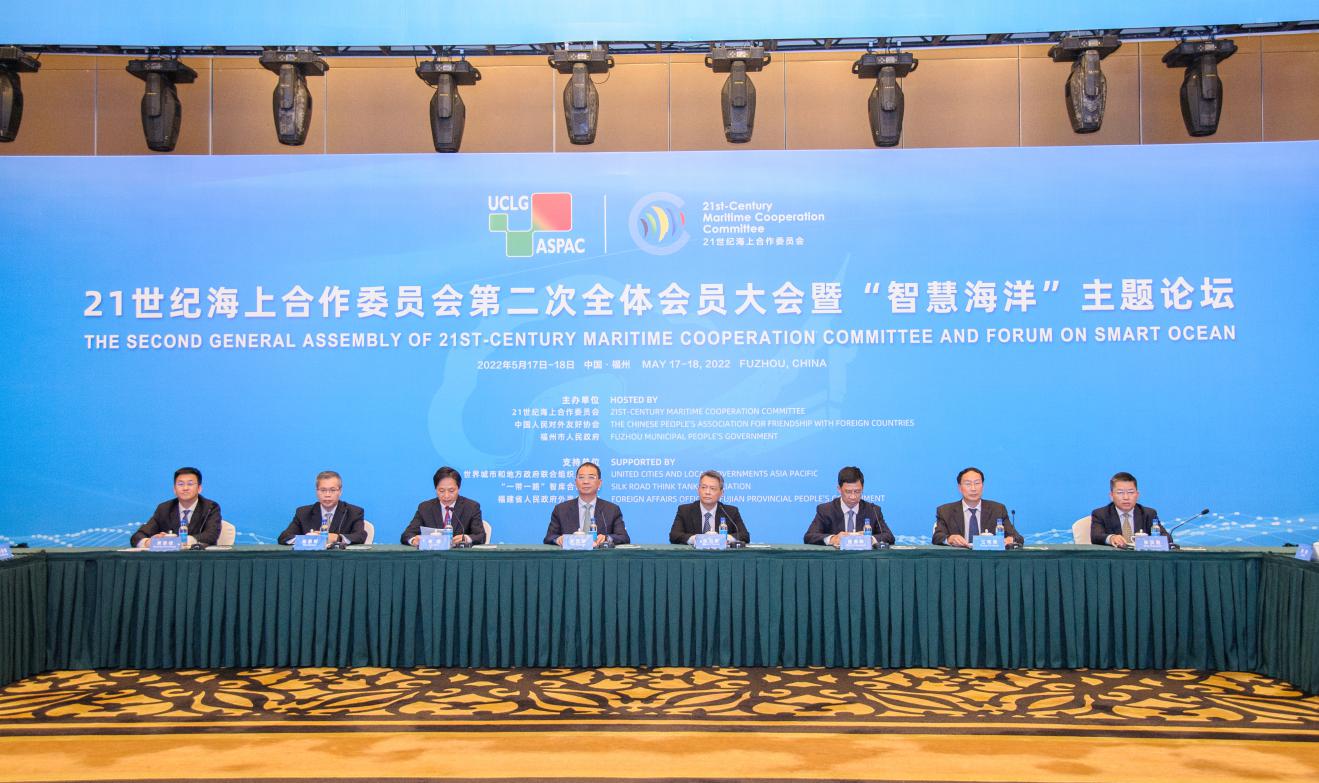
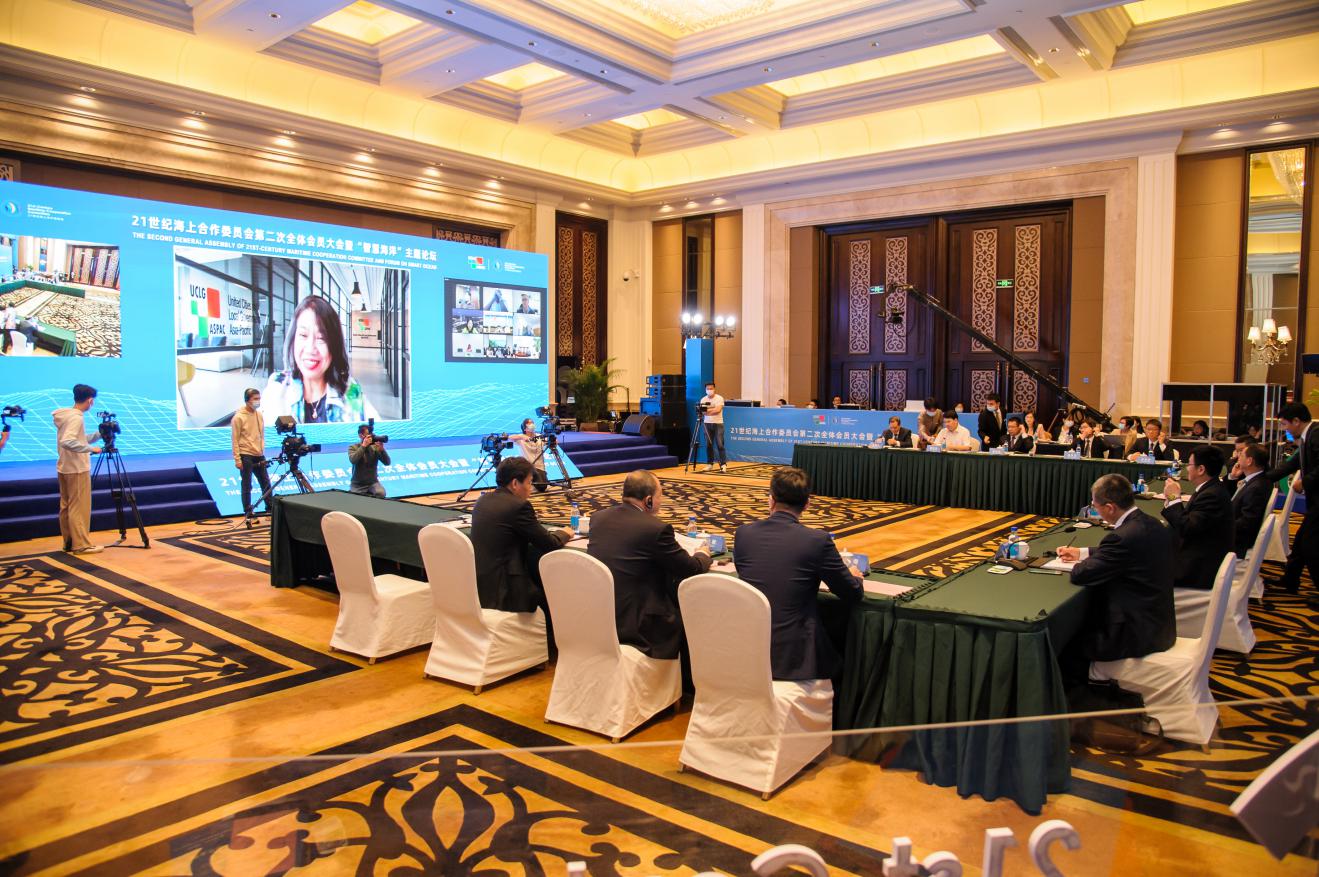
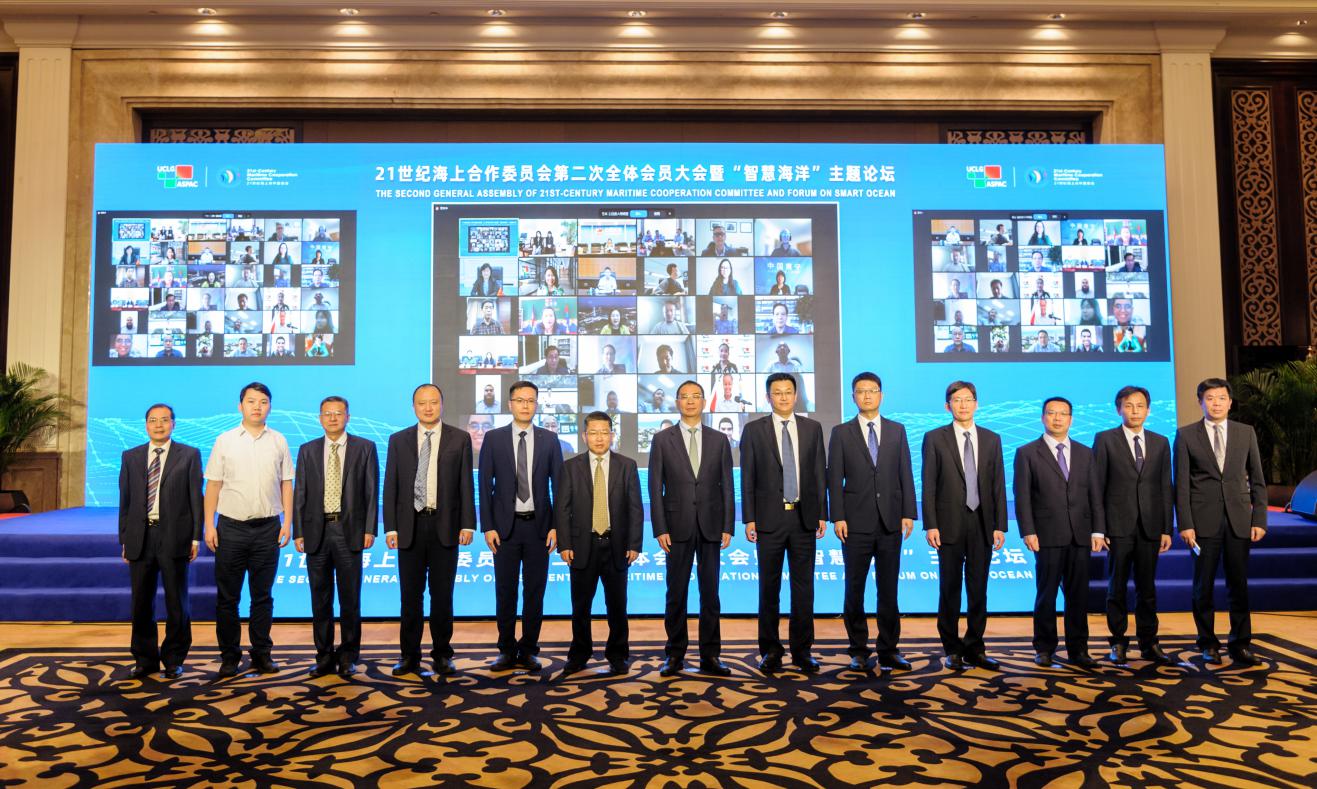
2.The Council Meeting of 21st-Century Maritime Cooperation Committee
The Council Meeting of 21st-Century Maritime Cooperation Committee was held at Strait International Convention and Exhibition Center in Fuzhou in the morning of June 2, 2023. The meeting brought together the council members, member and adviser representatives of the Committee. It featured a speech by Wu Xiande, President of 21st-Century Maritime Cooperation Committee, Mayor of Fuzhou Municipal People’s Government, and brief remarks by Co-Presidents and Co-President Representatives. Huang Jianxiong, Secretary General of 21st-Century Maritime Cooperation Committee, Member of the Standing Committee and Secretary General of the CPC Fuzhou Municipal Committee, introduced the work progress of the Committee since the Second General Assembly in 2022 and the next work plan, announced the list of new members and new advisors of the Committee since the Second General Assembly in 2022. Member and advisor representatives of the Committee made speeches.
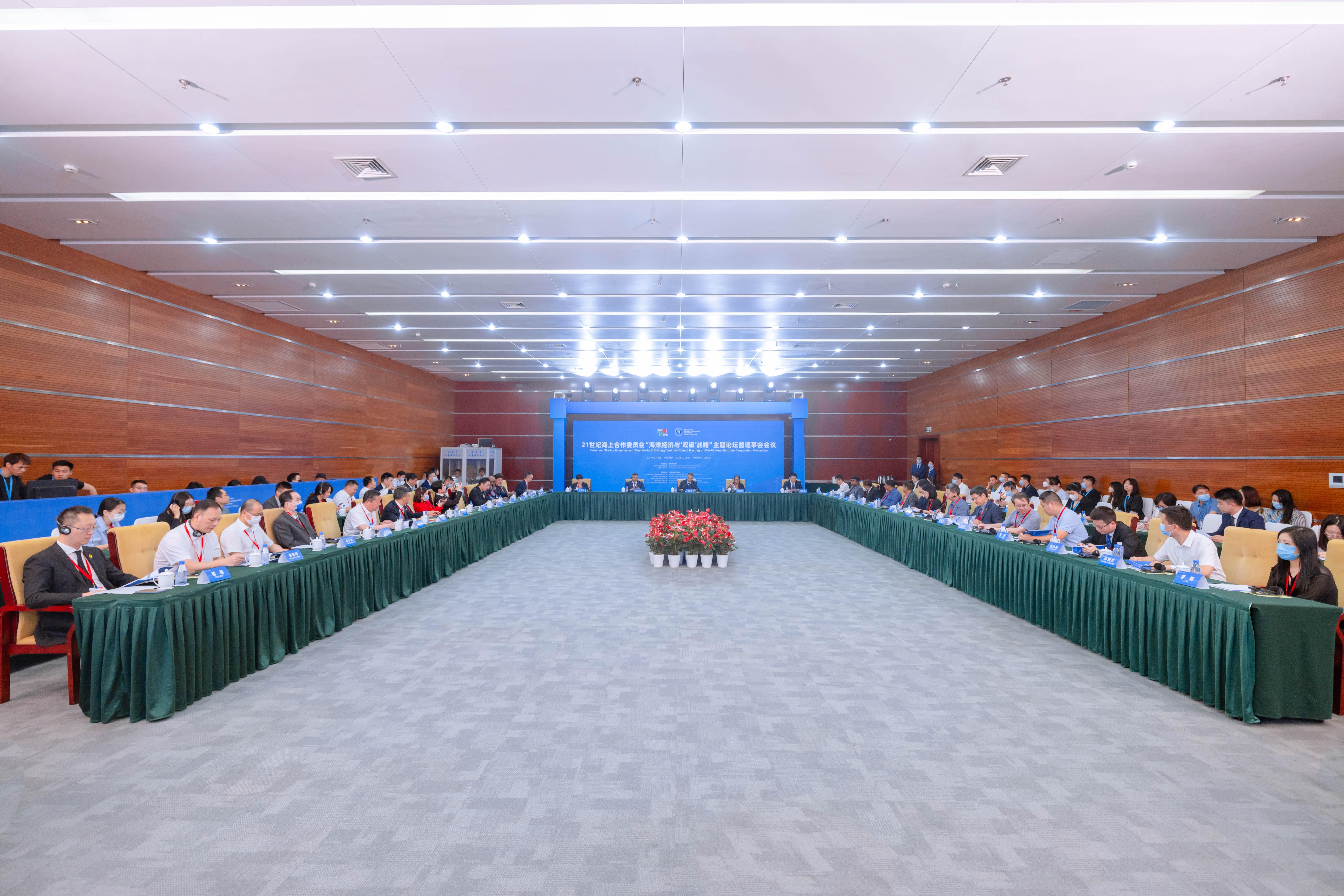
3. Themed Forums
(1) “Marine Economy and Urban Development – City Image and Tourism Cooperation” Forum
The “Marine Economy and Urban Development – City Image and Tourism Cooperation” Forum, held in Fuzhou in May 2018, attracted more than 100 guests from 21 countries and regions. In the forum, delegates of Mombasa County, Okinawa Prefecture, Dunkirk Urban Community, Municipality of Pescara, City of Manila, Gwangyang City presented the features of their cities, and had discussions on tourism cooperation. After the promotion, five domestic tourism enterprises signed the Strategic Cooperation Agreement on Tourism Development with five overseas tourism companies in Russia, the Philippines, Indonesia and Sri Lanka.
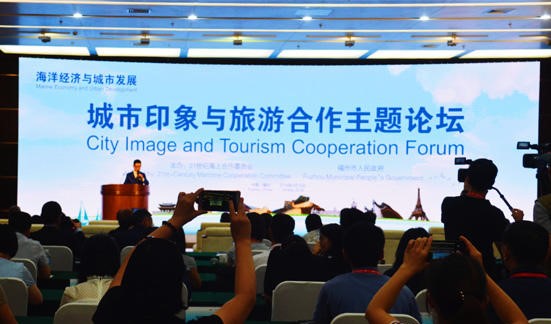
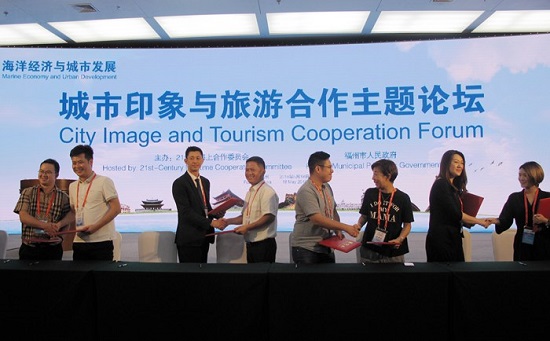
(2) “Marine Economy and Urban Development – Coastal and Port Cooperation” Forum
The Committee held the “Marine Economy and Urban Development – Coastal and Port Cooperation” Forum and associated activities in Fuzhou on May 17, 2019. Nearly 150 guests from 16 countries attended the event. The delegates from UCLG, the Committee members, Fuzhou’s international sister cities, port and shipping enterprises, and experts in the marine field exchanged views on the construction of smart and green ports and the development of marine economy. The forum also served as a platform for the delegates to jointly discuss the building of an international port ecosystem by opening, sharing and win-win cooperation, so as to advance practical exchanges and achieve win-win outcome.
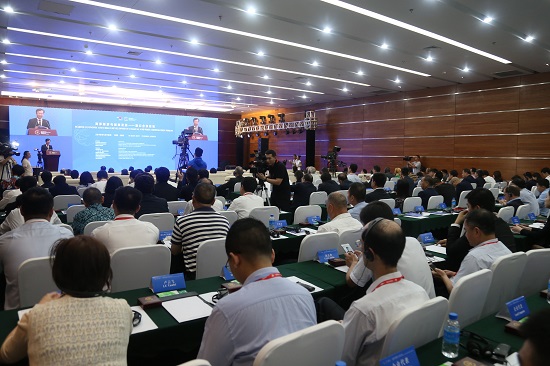
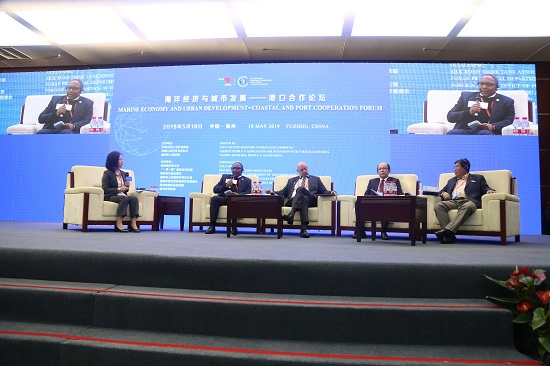
(3) Forum on Smart Ocean
On the afternoon of May 18, 2022, Forum on Smart Ocean was convened in Fuzhou, China, in a hybrid form integrating online and in-person attendance. Over 120 delegates of more than 70 groups from 22 countries and 3 international organizations participated in this event, including the members and advisers of the Committee, representatives of international organizations, Fuzhou’s international friendship cities and cities of friendly exchanges and the business community, officials of foreign embassies and consulates in China, as well as experts and scholars from China and other countries. Under the theme of “Marine Development Through Science and Technology”, participants shared their research, practice, experience and achievements of the smart ocean field in the sessions of keynote speech and free discussion, so as to pool the wisdom for developing smart ocean and open up new areas of maritime cooperation.
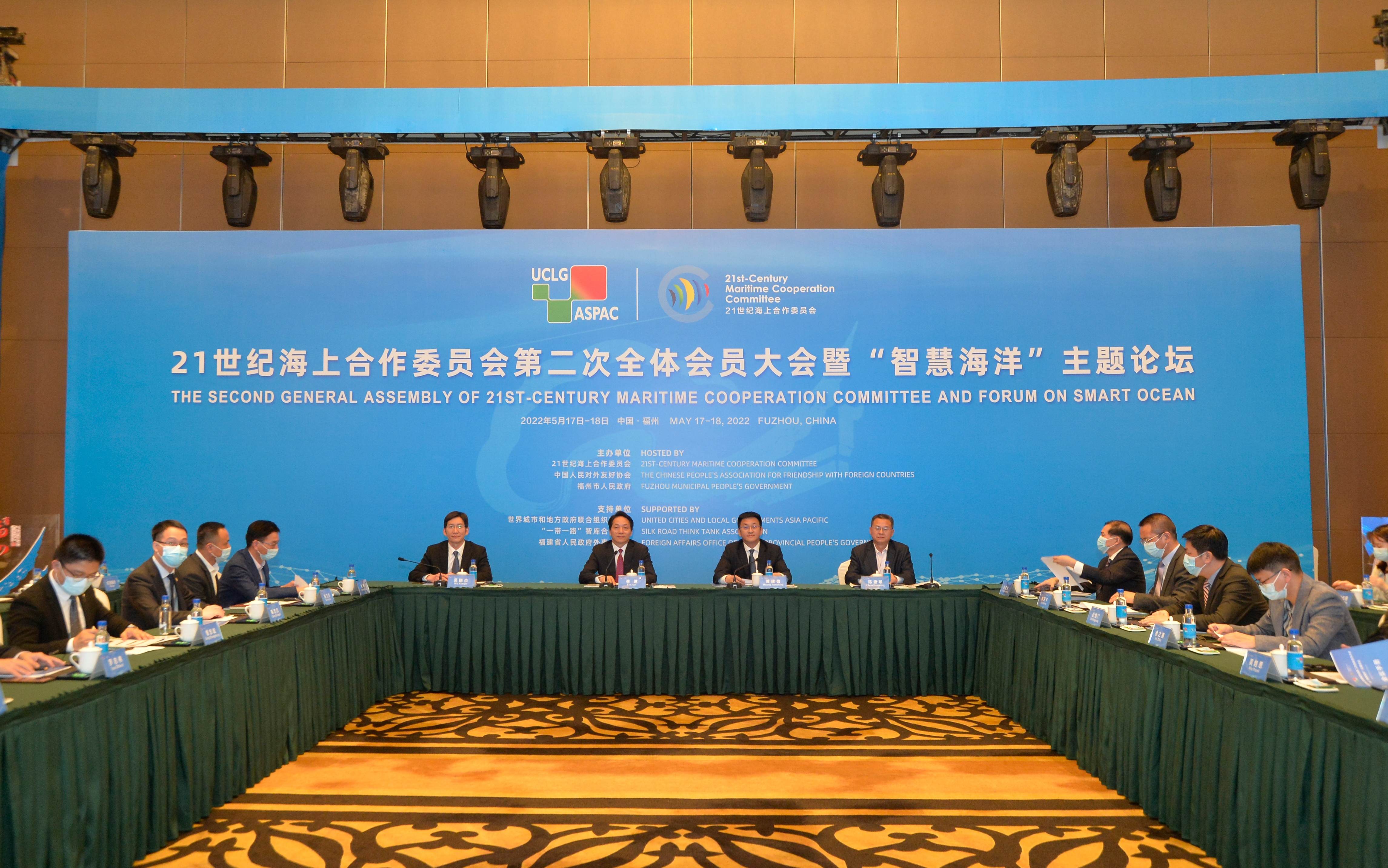
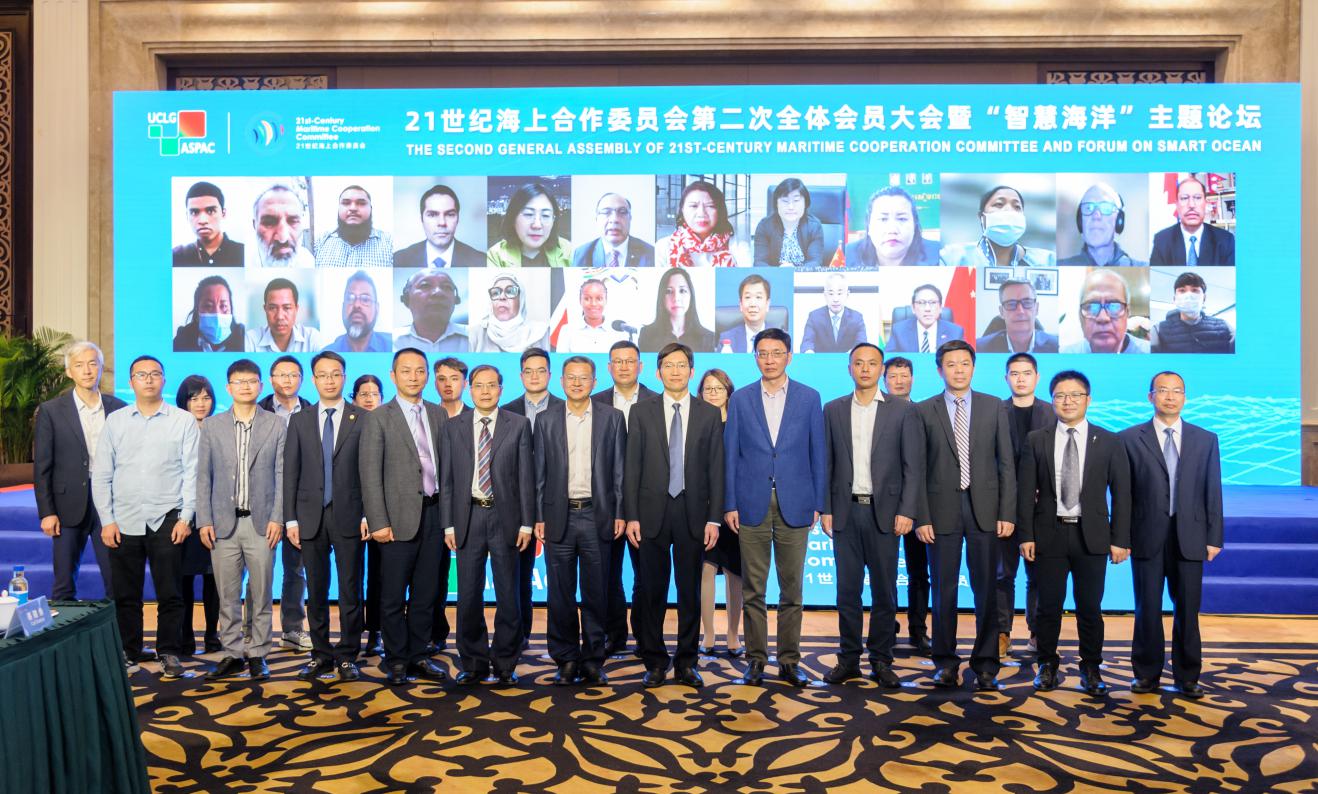
(4)Forum on "Marine Economy and 'Dual Carbon'Strategy"
Forum on "Marine Economy and 'Dual Carbon' Strategy" was held at Strait International Convention and Exhibition Center in Fuzhou on June 2, 2023 in a combination of online and offline formats. The forum included an opening ceremony, a keynote speech session and a panel discussion session. Focusing on marine economic development with the “Dual Carbon” strategy, it brought together attendees to discuss ways to utilize marine resources sustainably, promote the transformation of old and new drivers for blue economy development, bolster the structural upgrading and green transformation of marine industries, and boost the high-quality development of marine economy, in a bid to make the ocean a new economic growth point and an inexhaustible driving force for sustainable development of all countries.

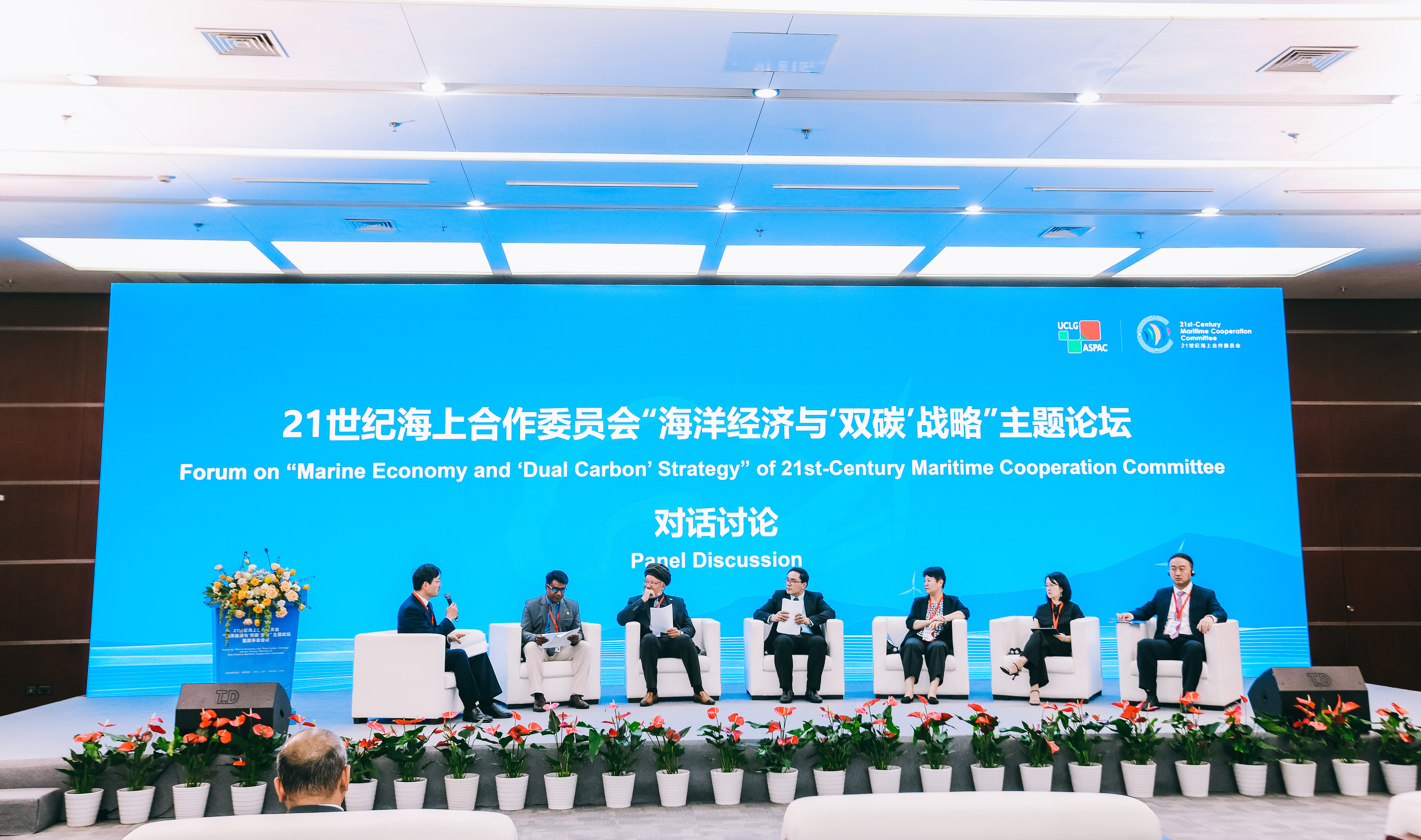
4. The Workshop on “Marine Ecology Conservation” and Related Fields
(1) The Workshop on “Marine Ecology Conservation and Management”
The Workshop on “Marine Ecology Conservation and Management” was organized by the Committee from August 26 to 30, 2019. More than 10 local government officials from Trinidad and Tobago, Sri Lanka and Pakistan and over 20 experts and scholars in related fields from domestic universities and academies attended the workshop. The lectures and site visits have improved participants’ understanding of marine biodiversity and ecological protection, strengthened the awareness of sustainable development, and promoted cooperation in marine conservation.
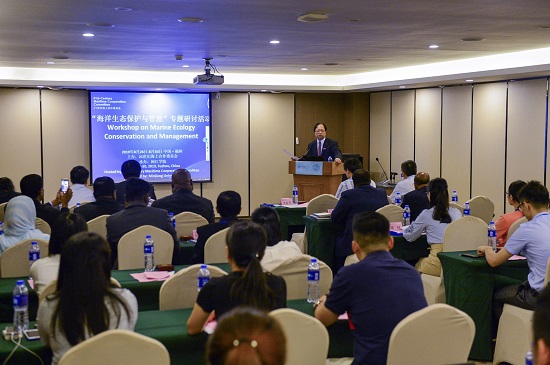
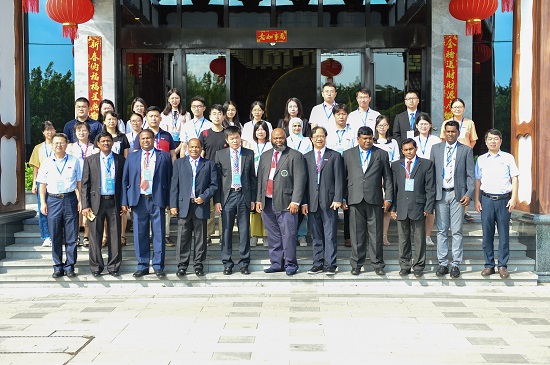
(2) The Online Workshop on “Marine Ecological Conservation and Disaster Risk Reduction”
On the three afternoons of August 31st, September 1st and 2nd, 21st-Century Maritime Cooperation Committee and World Association of the Major Metropolises (Metropolis) jointly held the Online Workshop on Marine Ecological Conservation and Disaster Risk Reduction via Zoom. The workshop was attended by more than 60 local governments and organizations from Australia, Afghanistan, Pakistan, Republic of Korea, Cambodia, Kenya, Myanmar, Nepal, Spain, Indonesia and China. Through lectures and panel discussion, participants deepened their understanding of Fuzhou’s marine development, including marine disaster prevention and reduction, marine industry development, current status of native oyster reefs and related ecological restoration approaches, marine aquaculture and sustainable development, and conservation and sustainable utilization of marine biodiversity. The workshop contributed to promoting the sense of calling and responsibility for marine ecological conservation and disaster risk reduction, and laying a foundation for future cooperation in related fields. Representatives from all parties actively offered their opinions and suggestions on marine ecological conservation and disaster risk reduction.
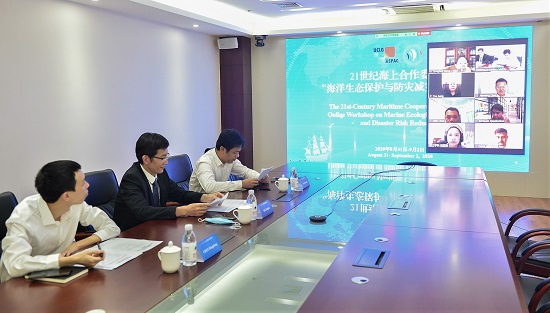
(3) Online Workshop on Marine Litter Management
On the afternoons of August 25-27, the Online Workshop on Marine Litter Management, co-hosted by 21st-Century Maritime Cooperation Committee and World Association of Major Metropolises was attended by more than 60 participants from 15 countries via Zoom, such as Indonesia, Republic of Korea, Nepal, Kenya and Sri Lanka. This workshop included 6 lectures and 1 panel discussion under the theme of “Marine Litter Management”, introducing key measures for marine litter management and sharing related policies, legislation and regulatory methods. From the workshop, participants can have a better understanding of the practice of marine litter management, and enhance their awareness of marine ecological conservation. Participants also exchanged their experience and practices of their cities and organizations in the marine litter management, laying the foundation for future cooperation in related fields.
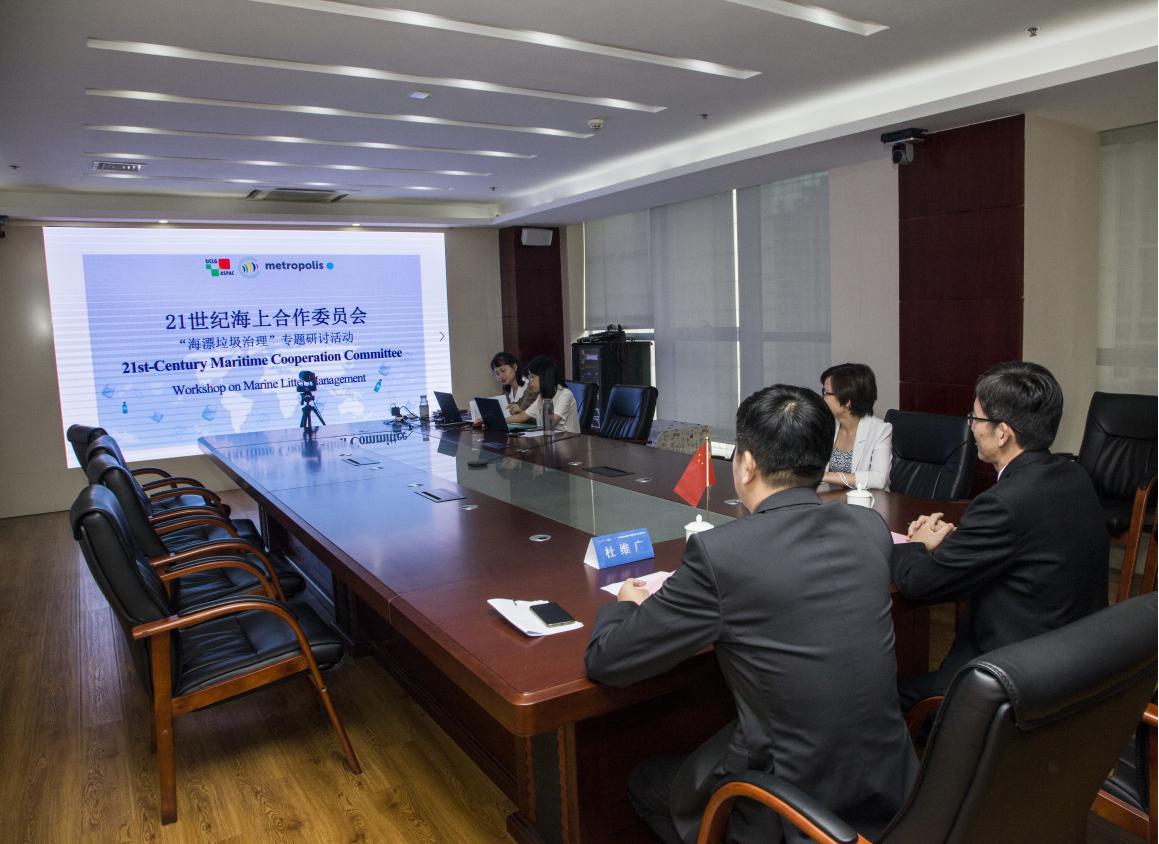
(4)Online Workshop on Ocean and Climate Change
On Sept. 14-16, 2022, the Online Workshop on Ocean and Climate Change, co-sponsored by the UCLG ASPAC, the UNESCO Beijing Cluster Office, the China Center for Contemporary World Studies, International Department of Central Committee of CPC, and the 21st-Century Maritime Cooperation Committee, was hosted via Zoom in Fuzhou. The event was participated by over 50 experts, scholars and representatives from 28 Committee members, local governments and institutions in 14 counties, such as New Zealand, Indonesia, Nepal, Kenya, Sri Lanka, etc. The workshop, which included six lectures and one panel discussion session, was carried out around topics of climate change and marine environment, marine ecosystem, marine economy, etc., and was warmly received by participants. The latest research results on oceans and climate change and effective governance practices from around the world shared during this workshop effectively raised the awareness of climate change among participants, and built consensus and strengthened cooperation through the platform of the 21st Century Maritime Cooperation Committee for the joint response to the challenges of climate change.
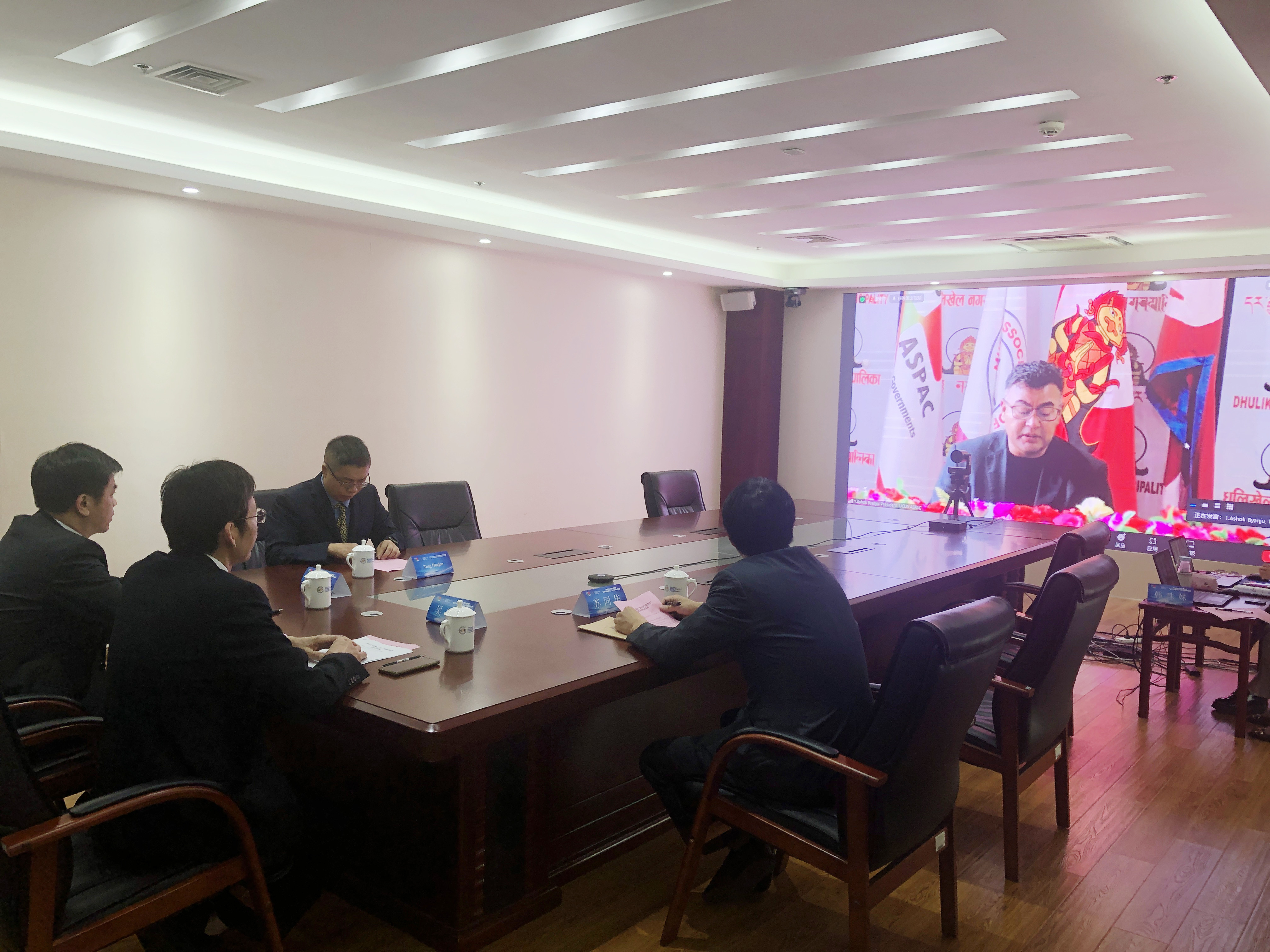
(5) The Workshop on Juncao Technology
The Workshop on Juncao Technology of 21st-Century Maritime Cooperation Committee was held in Fuzhou from May 16 to 25. The workshop was jointly hosted by the 21st-Century Maritime Cooperation Committee and Fuzhou Municipal People’s Government and organized by the Foreign Affairs Office of Fuzhou Municipal People’s Government and Fujian Agriculture and Forestry University. Representatives from 12 countries, including members of the Committee, Fuzhou’s International Friendship Cities and South Pacific countries, and staff of Foreign Affairs Office of Fuzhou Municipal People’s Government and China National Engineering Research Center of Juncao Technology gathered together in the workshop that was carried out in the form of classroom lectures, cultural experiences, on-site teaching and visits to introduce edible and medicinal mushrooms, the cultivation and management of Juncao grass, and the utilization of Juncao technology. The extensive use of Juncao technology in food security, ecological management and clean energy was discussed to deepen the cooperation of members in promoting green development.


5. The Standing Committee Meetings of 21st-Century Maritime Cooperation Committee
(1) Fuzhou, China
During the 2017 UCLG ASPAC Council Meeting and Symposium on “Marine Economy and Urban Development” convened in Fuzhou, the First Standing Committee Meeting was held on November 8, 2017 with the participation of around 200 delegates, including 17 governors and mayors and 66 delegations from 22 countries and regions.
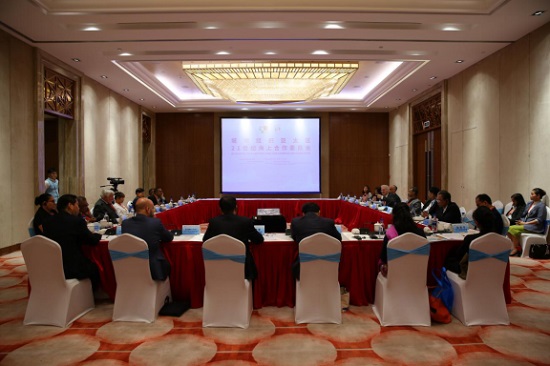
(2) Islamabad, Pakistan
The Second Standing Committee Meeting was convened on April 10, 2018 during the 2018 UCLG ASPAC Executive Bureau Meeting in Islamabad. Over 60 delegates from the Committee and UCLG ASPAC attended.

(3) Surabaya, Indonesia
The Third Standing Committee Meeting was held in September, 2018 during the 7th UCLG ASPAC Congress in Surabaya, Indonesia, with more than 100 representatives of UCLG ASPAC Presidency and the Committee members attending. At the meeting, the delegates from Fuzhou presented the development and experiences of Fuzhou’s digital economy and introduced the marine-related education and training programs of Minjiang University.
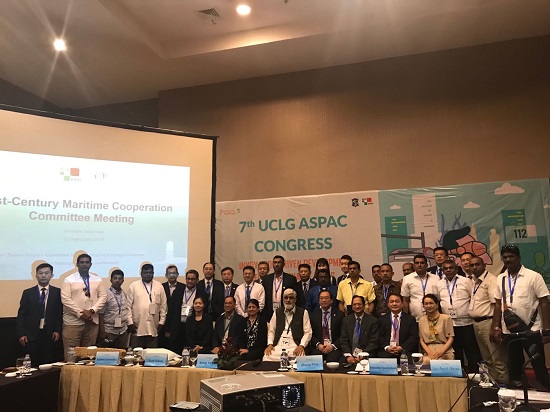
(4) Yiwu, China
The Fourth Standing Committee Meeting was convened on May 21, 2019 during the 2019 UCLG ASPAC Executive Bureau Meeting in Yiwu, China. Over 80 delegates from the Committee members, like Guangzhou, Hangzhou, Jakarta and New Zealand One Belt One Road Council, and other cities and organizations attended the meeting. The delegates of Fuzhou presented the renovation of old houses and the treatment of black and foul water pollution in Fuzhou.

(5) Makati, the Philippines
The Fifth Standing Committee Meeting was held on September 5, 2019 during the 2019 UCLG ASPAC Council Meeting and Disaster Risk Reduction and Management Forum held in Makati, the Philippines. A total of over 100 guests from Beijing, Xi’an, Changsha, Chengdu, Zhengzhou, Haikou, Surabaya, Padang, Busan, Local Government Authority of Maldives, Malaysia Local Authority Association and other cities and organizations attended the meeting. At the meeting, Fuzhou’s delegates shared the practice and experience on the control of flood and typhoon and marine plastic pollution prevention in the city.
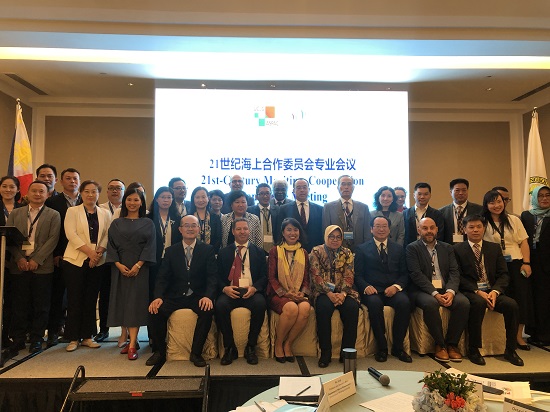
(6) Fuzhou, Fujian
On August 20, 2020, the 6th 21st-Century Maritime Cooperation Committee Meeting was successfully hosted via Zoom in Fuzhou during the 2020 UCLG ASPAC Executive Bureau Meeting. The online Committee Meeting, under the theme of “local governments' role in the post COVID-19 era”, was attended by over 60 representatives from 31 members of UCLG ASPAC and 21st-Century Maritime Cooperation Committee, including cities and organizations in Indonesia, Cambodia, Republic of Korea, Kiribati, Pakistan, Afghanistan, Nepal, New Zealand and China. At the meeting, the representatives of Fuzhou shared local experience of epidemic prevention on the community level and measures for economic recovery. Other participants also exchanged views on the epidemic prevention and the economic recovery measures in their respective cities.

(7) Fuzhou, Fujian
On September 8, 2021, during UCLG ASPAC 8th Congress, the 7th 21st-Century Maritime Cooperation Committee Meeting was successfully held in Fuzhou online. With the theme of “Digitalisation Contributing to Recovery and Prosperity of Cities”, the meeting was attended by more than 60 participants from more than 30 cities and organizations in more than 10 countries including Indonesia, New Zealand, Poland, Myanmar, etc. At the meeting, the Secretariat of the Committee briefed on its work since the 6th Committee Meeting and the future work plan, and briefly introduced the Committee's new members and advisers. Representatives from Fuzhou municipal departments shared the development of “Digital Fuzhou”, the role of information systems in epidemic prevention and control, and the application of digital technology to resource planning and management. The participants also exchanged views on the application and development of digital technologies in the fields of epidemic prevention, urban development and governance.
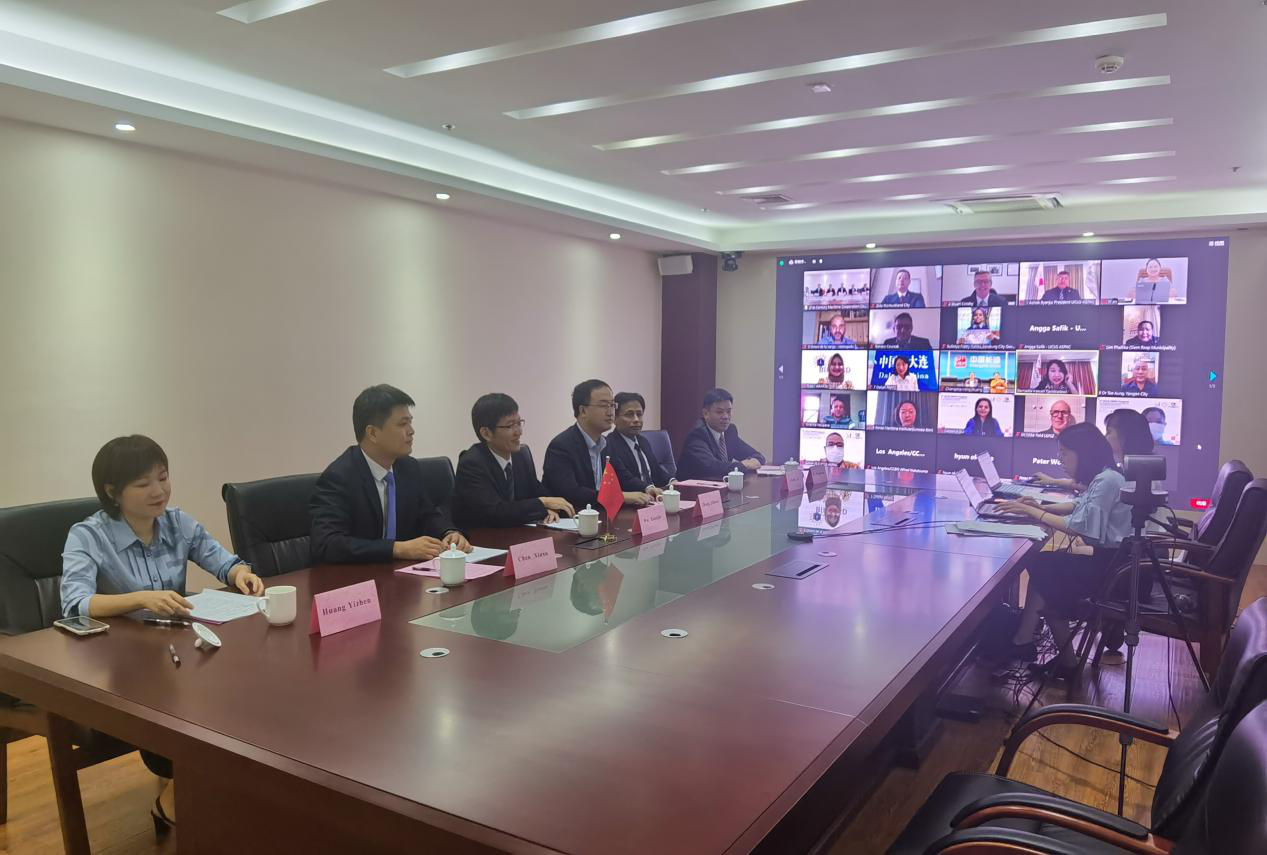
(8)Fuzhou, China and Daejeon, the ROK
On October 10, 2022, during the 7th UCLG World Congress in Daejeon, the 8th 21st-Century Maritime Cooperation Committee Meeting was successfully held in a hybrid form with the offline venues in in Fuzhou, China and Daejeon, ROK. Themed on “Inheritance and Innovation of the Maritime Silk Road Culture”, this event was participated by more than 50 representatives from over 30 member cities and organizations of the UCLG and the Committee from over 10 countries, such as New Zealand, Kenya, Sri Lanka, Guyana, etc. During the meeting, the Secretariat of the Committee briefed on its work since its Second General Assembly in May and introduced its future work plan. Representatives of Fuzhou made presentations on Fuzhou’s protection and utilization of its MSR cultural heritage and its work in tapping and promoting relevant tourism resources. Finally, participants exchanged views on the MSR-related cultural monuments of their own cities and the relevant protection.

(9)Kathmandu, Nepal
On April 12, 2023, the 9th 21st-Century Maritime Cooperation Committee Meeting was successfully held in Kathmandu, Nepal. The meeting was moderated by Mr. Du Weiguang, Deputy Director of the Foreign Affairs Office of Fuzhou Municipal People’s Government and Deputy Secretary General of 21st-Century Maritime Cooperation. More than 40 representatives from countries and organizations including Indonesia, Japan, Korea, Nepal, Malaysia, the Philippines, Pakistan, China, and UCLG-Africa also attended the meeting. The Secretariat briefed on the latest progress and the future working plan of the Committee. Representatives from the city of Fuzhou introduced the comprehensive management of Fuzhou's water system, and the practice and experience of Fuzhou’s urban household waste sorting and disposal.
